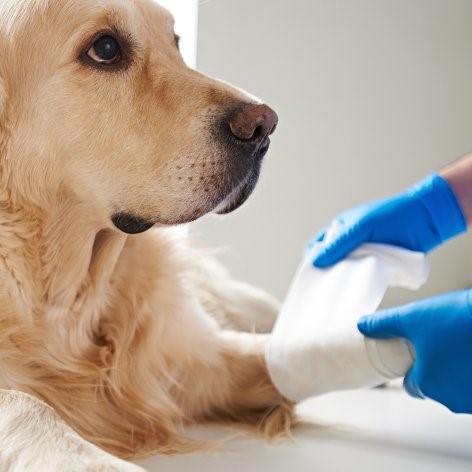Owning a pet dog brings a lot of pleasure, but also a responsibility to look after their health and well-being. Intestinal worms are common in dogs, and if untreated can affect their quality of life. Some dog intestinal worms can also pose a health risk to humans. Luckily for dog owners, worms are easy to treat at home.
Establishing a schedule for regular use of worming tablets is key to your dogs and your continued good health.
Intestinal worms, such as roundworm, whipworm, hookworm and tapeworms, are common in dogs. Dogs can become infected through various sources, but most commonly through contact with other dogs or contaminated soil when out and about. Tapeworms, the most common variety of worms in dogs, use fleas as part of their lifecycle and are transferred to dogs when they groom themselves and eat infected fleas. Puppies can also become infected with worms from their mothers. Worms can survive in the ground for up to five years, so even if your dog is infection-free, it is important to establish a regular worming routine to protect them and your backyard from becoming hosts.
The main symptom of worms in dogs to look out for is ‘scooting’ (dragging their anus along the ground).
Other signs of intestinal worms in dogs can be lethargy, weight loss and general ‘ill thrift’. If untreated, heavy intestinal worm burdens can cause diarrhoea and vomiting. In puppies, large numbers of worms can cause anaemia, and in extreme cases death, so it is essential to start a worming plan early.
If you think your dog has worms, make sure you always wash your hands after playing with your pet - especially before eating any food and establish a treatment plan right away. If concerned you should always seek professional advice from your vet; however, thankfully, worms in dogs are simple to treat at home.
Treatment schedules can be found on all intestinal worming packets, but an example* is: (*can be dependent on the product used):
- Worm puppies at 2, 4, 8, and 12 weeks of age
- And then give monthly worming tablets until six months of age
- Dogs over six months of age require treatment every three months for the remainder of their life
To keep your dog and your family safe from worms, and prevent any ongoing infections, always stick to a good worming schedule. Look for a worming method which suits you and your pet’s lifestyles. There are tablets, chewable tablets, top spots and for young dogs, there are syrups.
Remember that tapeworms – the most common intestinal worm seen in dogs - use fleas as an intermediary host, so make sure you follow a regular program of flea prevention, too.
Understanding the signs and symptoms of intestinal worms in dogs plus the methods dogs can become infected with them, can help you combat them and leave you, and your dogs, both happier and healthier.





